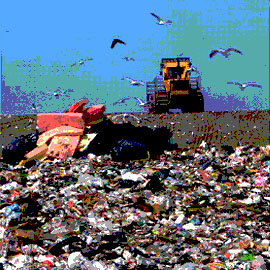Last month, world leaders convened in New York City for the UN Climate Summit sparking headlines around the world. While scientists and politicians continue to debate the causes of and solutions to climate change, one topic gaining attention outside of the board rooms is food waste.
According to a recent article in The Washington Post, “Roughly a third of the food produced worldwide never gets eaten.” In the US, we shamefully throw away 35 million tons of food each year – that’s equivalent in weight to 175,000 blue whales that, swimming end-to-end, would wrap around the entire Earth and then some.
So what’s the big deal? As further noted in the Post: “The price for producing food that never ends up in someone’s mouth is much more—it includes both the resources and environmental decay sacrificed for its making.… When Americans throw out meat, they are wasting some of the most environmentally costly food available.”
The Environmental Working Group estimates that about 20% of all meat produced in the US isn’t consumed. It’s just rotting in landfills.
As animal advocates, most of us are acutely aware of the environmental devastation caused by animal agribusiness as well as the tremendous suffering farmed animals are forced to endure behind closed doors. These animals spend their lives in abject misery just to make the next round of nuggets and patties for Americans to consume – and after all of the emotional, physical, and environmental abuse, we’re simply throwing away one one-fifth of the meat we produce – from slaughterhouse to landfill.
Thankfully, we can take steps to change all of this.
First and foremost it starts with our fork: the best way we can protect the environment and animals is to simply leave meat, milk, and eggs, off our plates.
There are also community-based nonprofits nationwide who are working to recover food that would otherwise be wasted – and serve it hungry families.
By combining our compassion with a waste not, want not mentality, we can increase our positive impact on the world.



Comments 1
I have been lacto-vegetarian excluding milk. Using soy milk, eggs, cheese and greek style yogurt for the last 20 years. Didn’t ever think about animal or earth impact. It was a health choice for my family. My children are healthy, sport players, intelligent, college graduates without eating meat of any kind their whole lives. My eyes are now opening to what my spirit always understood.